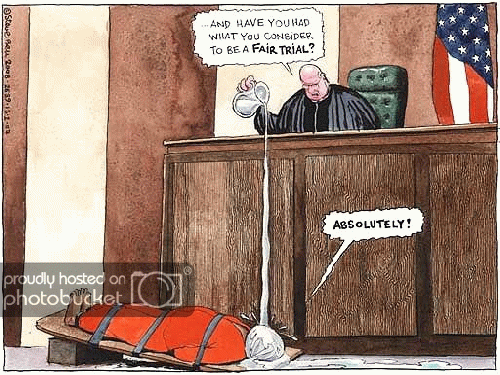(source)

Does Dick Cheney Want to be Prosecuted? |
|
(source)
|
Rate It | View Ratings |

OpEdNews depends upon can't survive without your help.
If you value this article and the work of OpEdNews, please either Donate or Purchase a premium membership.
If you've enjoyed this, sign up for our daily or weekly newsletter to get lots of great progressive content.
Most Popular Articles by this Author: (View All Most Popular Articles by this Author)
The Guantánamo "Suicides": A Camp Delta sergeant blows the whistle
Does Dick Cheney Want to be Prosecuted?
America's Corruption Racket in Central Asia
What the Justice Department is Hiding
Bread, Circuses, and the Edwards Prosecution
Palin's Talent Scout
To View Comments or Join the Conversation:



